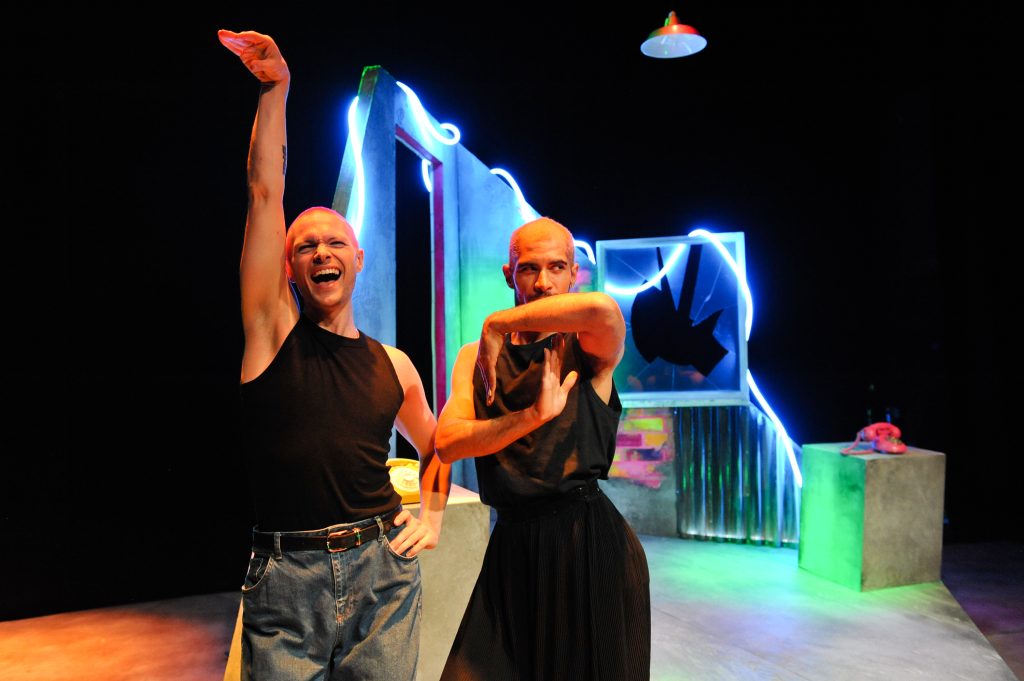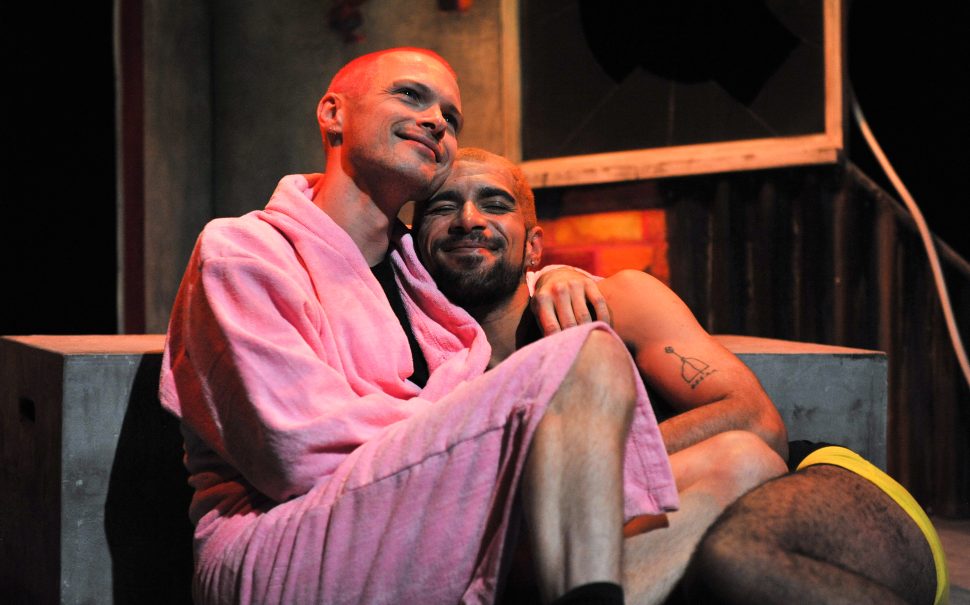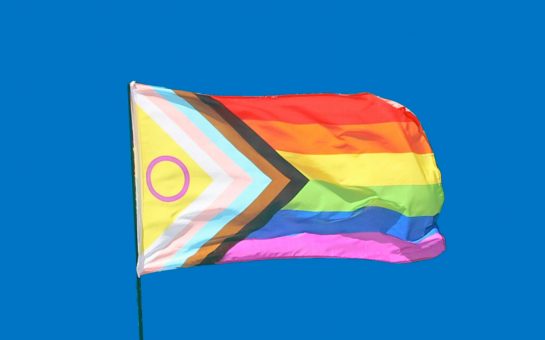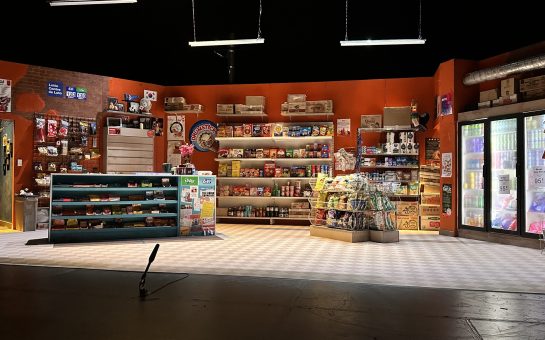Stockport-born playwright, activist and former cast member of TV revelation It’s a Sin Nathaniel Hall is reviving his 2023 smash-hit Toxic at the Lowry before taking it on a tour of the UK. We chatted with him about Britney Spears, ‘armchair activism’ and breaking the cycle of toxic relationships.
The play’s title – Toxic – isn’t just in reference to toxic relationships, it’s a nod to Britney Spears. What does her music mean to your work and life?
“People can often dismiss pop songs as ‘silly’, but actually when you delve into the lyrics of the song and go back and look at what the artist was going through at the time you start to realise that there’s actually a lot of deep meaning and emotion in a lot of pop songs.
“‘Toxic’ is obviously a belter, and it loomed very large in my early-20s, but also that the lyrics of the song, and what it’s really about, match very much with themes within the show itself.
“We’ve been talking more broadly across the process of the play about what Britney represents and who she is. There are a lot of crossovers between the tumultuous relationship the characters have in the play, and the relationships Britney had in her life. The final line of the song – ‘I think I’m ready now’ – is also the final line of the play. I’ve got it tattooed across my arm.”
Were you aware of the crossovers between the life of Britney Spears and the lives of the characters when you were making it?
“I think it was something that there was an awareness of. Queer people in particular are drawn to strong women, but we’re also drawn to people who feel a lot of pain. And you can see that through all the icons that gay people idolise and worship, like Britney Spears. The women that we’re drawn to are women that we can see ourselves in – women who are subjugated or fighting a battle with themselves or with society or with fame.
“There’s this real connection that gay men or Queer people find with these mega-stars, because there’s something within them that we know to be true within ourselves – the pain and the sadness behind the glittery facade we put on.
“It’s not something that’s explicitly in the play, but it’s something that was definitely there during the writing process.”
A big theme of Toxic is the feedback loop of hurt people hurting people and hurt people hurting themselves. What made it such an important topic for you to explore?
“When I was performing First Time, the first show in this trilogy, it always felt that I was… not selling a lie, because everything was true, but the tumultuous five-year relationship I was in and was portraying on stage was still going on when I toured it.
“What was important to me with Toxic was to demonstrate that it was something you could escape, because when you’re in it it can feel never-ending. It’s so important for people in my community to have positive role-models – not perfect role-models, but positive ones. It’s something that I lacked when I was younger.
“One of the things that I hopefully do, and I channel it through my activism as well, is to try and show people that a different way is possible. Before First Time there were no narratives about people not just living, but actually thriving with HIV.
“In my work I always try to avoid – which is always hard to do in ninety-minutes or so – the ‘everything gets better in the end’ ending, because it’s more complicated than that. Life is hard, but we can thrive, in spite of the things that have happened to us. You don’t have to resign yourself to a life of pain and sadness. It might take a bit of hard work but it’s so worth it in the end.”

Activism is a big part of your life – not just activism for people living with HIV, but also anti-fox-hunting activism and pro-Palestinian activism. Who are your biggest heroes?
“I always look to my friend Dan Glass, who relaunched Act Up London, as someone who is just doing the most amazing work. He has a book on LGBTQ+ history in London, but he and another collective host amazing parties in memory of George Michael. I went to one on Hampstead Heath by the famous ‘Fuck Tree’ where George liked to frequent.
“It was all about reclaiming George’s queerness as a sexually active being and not allowing his memory to be sanitised, but before the dancing there was space for people to talk; people from Palestine, all these different voices. It was such a special thing.
“The thing with activism today, especially with social media, is it’s so easy to access. You can read the teachings of Audre Lorde or James Baldwin on your phone. The democratisation of activism, and the sharing of it through social media, is really powerful.”
What has becoming an activist meant in your own life?
“I always hesitate to call myself an activist because I don’t really know what that means exactly. But something I have learned is that activism doesn’t just happen at rallies or protests or in big speeches, it’s a mindset.
“I came to realise that after the media whirlwind when First Time was touring. I’d been on BBC Breakfast and ITV News, but a couple of weeks later I went to get my haircut in a straight barbers – not a place where Queer people feel the most relaxed.
“The barber asked me what I did. It was the first time I had to say out loud, to a stranger in my personal space, that I live with HIV and had just made a show about it. It was a marked shift for me, far more terrifying than anything I’d done before – the real frontlines.
“It actually ended up being a really positive conversation! That’s when I realised that this was the coalface.
“People often say that putting a post on social media is ‘armchair activism’. I totally disagree. Yesterday someone messaged me saying “I went vegan because of the things you posted”. It works. You can change hearts and minds.”
Toxic debuted at HOME in 2023. What is it like reviving the show in your hometown?
“I’m really pleased it’s coming back to Manchester, especially as we had a waiting list when it premiered at HOME, and now all the people who didn’t get the chance to see it last time have a second chance. Plus as an environmental activist I’m really happy it’s happening at the Lowry – within cycling distance from my home.
“It’s a uniquely Mancunian piece too, all set in the underground Queer raving scene in Manchester. There’s a lot of nuance in the play that I think Greater Manchester audiences will get. I believe you should write what you know because the more you try to be ‘universal’ the more it doesn’t work, so I’m interested to see how it will be received in other stops on the tour.”
It’s been over four years since your role as Donald in Russell T Davies’ It’s a Sin. What was it like to take on that role, and what has life been like since?
“Peachy! It was an honour and a privilege to be part of that cast and a part of that moment. Especially as the only openly HIV+ member of the cast, having that platform was so important to me. It was a wonderful thing to be a part of, and the impact that it had in terms of educating people around U=U and opening that conversation was incredible.
“As someone who’d been doing HIV activism for a while, having that level of coverage was unheard of. HIV was back on the agenda in a way it hadn’t been since the 80s and 90s, and it was a much more positive agenda this time.”
Toxic is on at The Lowry from April 16-19 and tickets are available here.
——————————————————————————————————————
Featured Images: Dawn Kilber




